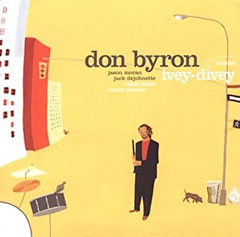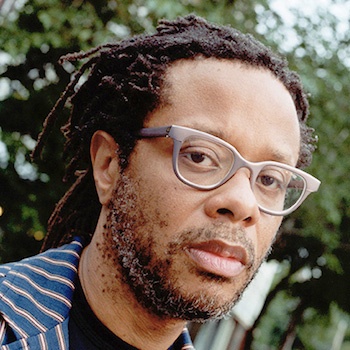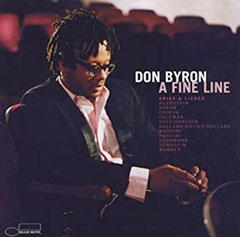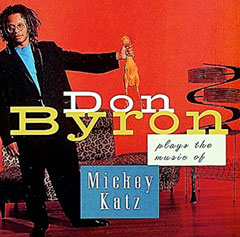Through our scientific and technological genius, we've made of this world a neighborhood. And now through our moral and ethical commitment, we must make of it a brotherhood.
Background
Don Byron is a Grammy-nominated clarinetist, saxophonist, composer, arranger, and social critic. Though his informal music education began in childhood, he formalized his music education by studying classical clarinet with Joe Allard while playing and arranging salsa numbers for high school bands on the side. He later studied with George Russell in the Third Stream Department of the New England Conservatory of Music and, while in Boston, also performed with Latin and jazz ensembles.
Interests
As a musician, Byron redefines every genre of music he plays: classical, salsa, hip-hop, funk, rap, R&B, klezmer music and German lieder, Raymond Scott’s “cartoon-jazz,” hard rock/metal, and jazz styles from swing and bop to cutting-edge downtown improvisation. Most of Byron’s albums have been conceptual, devoted to works of a particular musician and/or style of music. Though rooted in jazz, Byron has been a singular voice in an astounding range of musical contexts, exploring widely divergent traditions while continually striving for what he calls “a sound above genre”.
Prior to joining MIT as an MLK visiting professor, Byron performed with poet Paul Auster and the MIT Festival Jazz Ensemble in a program titled, “Words and Music and Other Sonic Collaborations” in 2005. As a MLK visiting professor, he taught a course on improvisation and coached a rock/funk chamber ensemble, as well as performed with faculty and students.
Sample Work
Album
Love, Peace, and Soul

Album
Do the Boomerang: The Music of Junior Walker
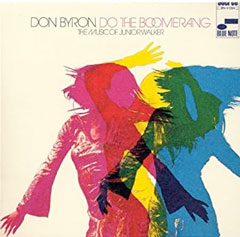
Album
A Ballad for Many

Album
Ivey-Divey
